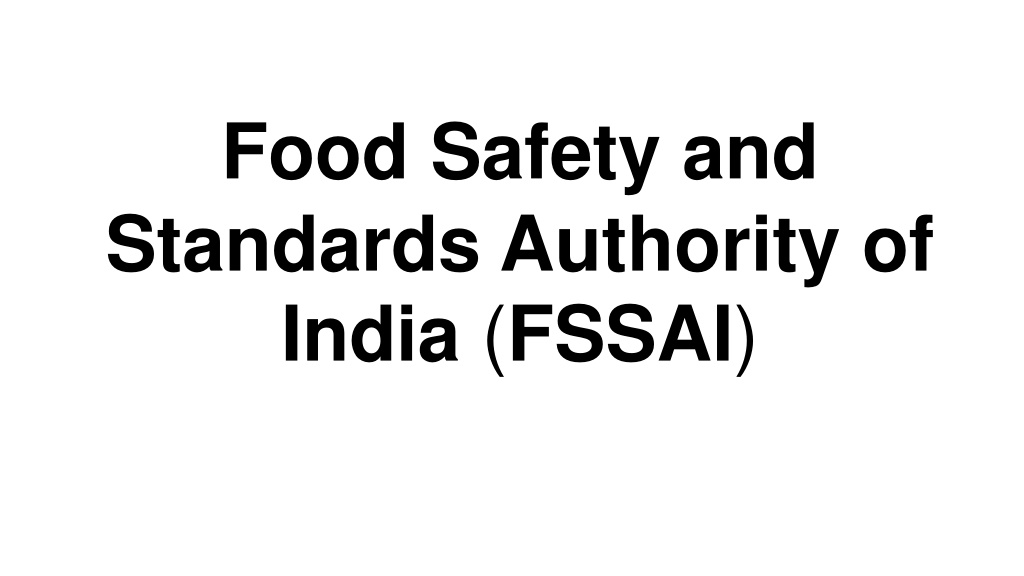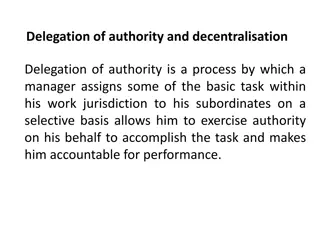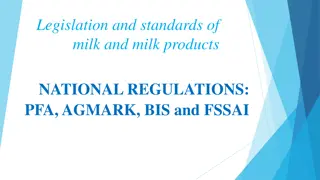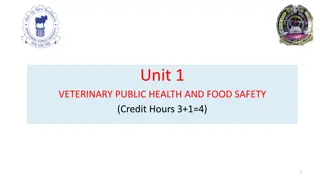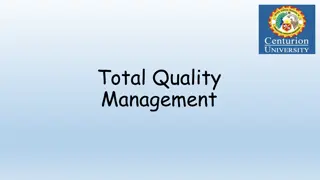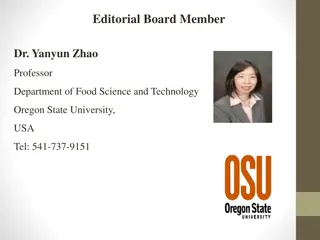Food Safety and Standards Authority of India
The Food Safety and Standards Authority of India (FSSAI) is a government body under the Ministry of Health & Family Welfare responsible for regulating and ensuring food safety across India. It sets standards for food products, oversees licensing and
Download Presentation

Please find below an Image/Link to download the presentation.
The content on the website is provided AS IS for your information and personal use only. It may not be sold, licensed, or shared on other websites without obtaining consent from the author. Download presentation by click this link. If you encounter any issues during the download, it is possible that the publisher has removed the file from their server.
E N D
Presentation Transcript
Food Safety and Standards Authority of India (FSSAI)
Ensuring Food Safety in India: The Role and Impact of FSSAI The Food Safety and Standards Authority of India (FSSAI), an independent organization under the Ministry of Health & Family Welfare, plays a pivotal role in maintaining and promoting food safety across the country. Its primary mission is to protect public health by regulating and supervising food safety standards.
The FSSAI Logo: A Symbol of Trust and Safety The FSSAI logo is more than just a visual identifier; it represents the authority s commitment to ensuring food safety and quality across India. The logo features a green leaf and a blue checkmark, symbolizing health, safety, and the approval of food products that meet stringent safety standards. When consumers see the FSSAI logo on food packaging, they can be confident that the product has been vetted and certified according to India s rigorous food safety regulations. This logo has become a trusted mark for both consumers and businesses, signifying adherence to high standards of food safety and hygiene. If you need this logo. You can click here
Core Functions and Responsibilities: Establishing Food Regulations: FSSAI is responsible for creating a comprehensive set of regulations to ensure food safety. These guidelines are designed to keep food products free from harmful substances and to maintain high standards of quality. Licensing and Registration of Food Businesses: licenses or register with FSSAI. This system helps track businesses and ensures they adhere to food safety norms. Setting Standards for Food Products: The authority establishes clear, science-based standards that food products must meet. These standards cover various aspects, including permissible ingredients, additives, and processing techniques. Food businesses in India must obtain
Inspections and Compliance Monitoring: Regular inspections by FSSAI ensure that food establishments maintain the required safety and hygiene standards. Non-compliance can result in penalties or revocation of licenses. Consumer Education and Awareness: food safety, proper nutrition, and accurate labeling through initiatives like the "Eat Right India" campaign. FSSAI is actively involved in educating the public about Laboratory Testing and Analysis: FSSAI operates a network of accredited laboratories across India. These labs test food products to detect contaminants and verify that they meet safety standards. Regulation of Food Imports and Exports: FSSAI oversees the import of food products to ensure they meet national safety standards. The agency also collaborates internationally to align India s food safety norms with global standards.
Encouraging Research and Innovation: The authority supports research initiatives aimed at improving food safety. This includes developing new methods for detecting harmful substances in food. Consumer Grievance Redressal: FSSAI provides a platform for consumers to report food safety concerns. The authority investigates complaints and takes appropriate action to resolve them.
Recent Developments The Eat Right Movement: A nationwide initiative promoting healthier, safer, and more sustainable eating habits. Food Fortification Efforts: FSSAI promotes the fortification of staples like rice, wheat flour, and salt with essential nutrients to combat malnutrition. Implementation of the Food Safety Compliance System (FoSCoS): This system streamlines the licensing and registration process, making it more efficient and transparent.
Challenges and Future Prospects: While FSSAI has made significant progress in enhancing food safety, challenges such as tackling food adulteration and ensuring widespread compliance remain. Moving forward, the focus will likely be on strengthening the regulatory framework, expanding testing capabilities, and integrating technology for better monitoring. In conclusion, FSSAI is crucial in ensuring that the food consumed by millions of Indians is safe, nutritious, and of high quality. Through its continued efforts in regulation, education, and enforcement, FSSAI is making strides toward a safer and healthier food landscape in India.
